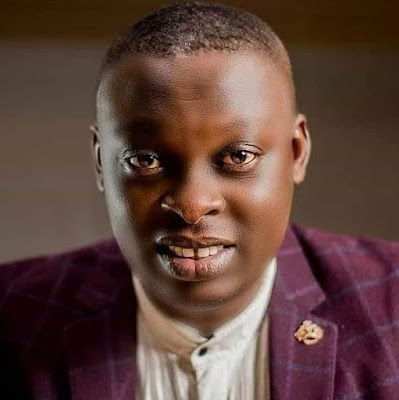 |
| Cover Page |
1. The Plot
"The Lion and The Jewel" is a
play written by Wole Soyinka, a Nigerian playwright and Nobel laureate. The
play, first published in 1963, is set in the fictional village of Ilujinle in
Nigeria and explores the clash between traditional African culture and Western
influence.
The plot revolves around three main
characters: Sidi: A young and beautiful village girl who is highly sought after
by the local men for her charm and beauty. Lakunle: A young and educated
schoolteacher who is determined to modernize the village and win Sidi's heart.
He represents the influence of Western culture and ideas. Baroka: The crafty
and cunning village chief who desires Sidi as his newest wife. He symbolizes
the traditional African culture and its struggle to preserve its values. The
story begins with Lakunle's attempts to court Sidi using modern Western
methods, such as writing poetry and advocating for women's rights. However,
Sidi is not easily impressed and is more drawn to the traditional ways of her
culture. She is flattered by Baroka's interest in her, and this leads to a
series of comedic and dramatic events. Baroka, aware of Lakunle's intentions,
devises a plan to win Sidi's heart. He pretends to be impotent, hoping that
Sidi will be attracted to him out of pity and desire for the prestigious title
of being his newest wife. As the story unfolds, the struggle for Sidi's
affection intensifies, and the clash between traditional values and modernity
becomes more pronounced.
Through witty dialogue and clever plot
twists, the play explores themes of culture, power, gender roles, and the
impact of colonialism on traditional societies. In the end, Baroka's plan
works, and he successfully marries Sidi, reaffirming the traditional values of
the village. The play concludes with a message that tradition and culture should
not be abandoned but adapted to the changing times while maintaining their
essence and identity.
2. Setting
The setting of "The Lion and The
Jewel" by Wole Soyinka is a fictional village called Ilujinle in Nigeria.
The village represents a typical rural African community with its customs,
traditions, and way of life. The play's events take place in this village,
where the characters interact and the conflicts between modernity and tradition
unfold.
The village is portrayed as a place
where cultural norms and rituals are deeply ingrained, and where the influence
of the village chief, Baroka, is significant. It is also the home of Sidi, the
beautiful young woman who becomes the center of attention for both Baroka and
the modern-minded schoolteacher, Lakunle. Throughout the play, the setting of
the village plays a crucial role in shaping the characters' beliefs and
actions, as they navigate the complexities of African culture and the impact of
Western influences. The clash between tradition and modernity is vividly
depicted against the backdrop of this rural Nigerian village
3. Themes
a. Clash Between Tradition And Modernity:
One of the central themes of the play is the clash between traditional African
values and modern influences. This is depicted through the character of
Lakunle, the schoolteacher who advocates for modernization, and Baroka, the
traditional village chief. The play raises questions about the impact of
Westernization on traditional African societies and the struggle to preserve
cultural heritage.
b. Power And Manipulation: The theme of
power is prevalent throughout the play, particularly in the character of
Baroka, the cunning and influential village chief. He uses various tactics,
including manipulation and charm, to assert his authority and maintain control
over the village. The play explores how power dynamics can shape relationships
and influence decision-making.
c. Female Empowerment and Gender Roles:
The character of Sidi, the beautiful village girl, highlights the theme of
female empowerment and the evolving roles of women in African society. Sidi
challenges traditional gender norms and expectations, leading to a shift in the
dynamics between men and women in the village. Cultural Preservation: "The
Lion and The Jewel" emphasizes the importance of preserving cultural
traditions and values. Despite the allure of modernity, the play underscores
the significance of maintaining a connection to one's roots and heritage.
d. Perception and Beauty: The concept of
beauty and its subjective nature is explored through the character of Sidi,
whose beauty is highly admired by the village men, including Baroka and
Lakunle. The play delves into the idea of beauty as a form of power and how it
can affect relationships and self-perception.
e. Theater and Performance: As a play
within a play, "The Lion and The Jewel" incorporates elements of
traditional African performance and storytelling. The use of theater and
performance in the play underscores the importance of storytelling as a means
of preserving cultural history and passing down knowledge.
f. Education and Westernization: The
play also addresses the role of education in African societies and its
association with Westernization. Lakunle's desire to modernize the village is
linked to his belief in the power of education and the potential benefits it
can bring to the community.
4. Characters and
characterization
"The Lion and The Jewel"
features several significant characters who contribute to the play's themes and
conflicts. Let's explore the main characters and their characterization:
a. Sidi:
Sidi is a young and beautiful village girl in Ilujinle. She is portrayed as
confident, flirtatious, and aware of her attractiveness. Sidi embraces her role
as the village's "Jewel" and takes pride in her appearance and the
attention she receives from men. Throughout the play, she becomes a symbol of
the clash between traditional values and modernity, as both Baroka and Lakunle
vie for her affection.
b. Baroka:
Chief Baroka is the cunning and crafty village chief of Ilujinle. He is
depicted as a shrewd and wise leader who uses manipulation and wit to maintain
his authority over the village. Baroka is portrayed as an older man, and
despite his age, he remains interested in Sidi and seeks to add her to his
harem of wives. His pursuit of Sidi becomes a central conflict in the play,
representing the traditional way of life resisting the forces of
change.Lakunle:
c. Lakunle
is an educated and idealistic schoolteacher who has adopted Western ways and
ideologies. He represents modernity and advocates for progress and change in
the village. Lakunle often clashes with Baroka due to their opposing views on
culture and tradition. He is genuinely in love with Sidi but struggles to
understand her values and the allure of tradition.
d. Sadiku:
Sadiku is an older woman and one of Baroka's wives. She is depicted as wise,
experienced, and loyal to her husband. Sadiku serves as a mediator between
Baroka and Sidi, providing insights into the village's dynamics and traditions.
e. Villagers:
Various minor characters in the village, including the schoolchildren and the
villagers, provide a backdrop to the central conflicts. Their reactions and
responses to the events in the play highlight the collective mindset of the
village community.
5. Dramatic Devices
In "The Lion and The Jewel,"
Wole Soyinka employs various dramatic devices to enhance the storytelling and
engage the audience. Some of the key dramatic devices used in the play include:
1. Soliloquy and Monologue: Characters
often speak their inner thoughts and emotions aloud, allowing the audience to
gain insights into their motivations and perspectives. These soliloquies and
monologues add depth to the characters and provide a better understanding of
their actions.
2. Dramatic Irony: There are instances
of dramatic irony, where the audience knows something that the characters do
not. This creates tension and anticipation as the audience waits to see how the
characters will react when they discover the truth.
3. Metaphorical Language: The play uses
rich and evocative metaphors to convey complex ideas and emotions. These
metaphors add depth and beauty to the dialogue and enhance the poetic nature of
the play.
4. Folktales and Legends: Traditional
African folktales and legends are woven into the play, providing cultural
context and adding an element of storytelling within the story. These tales
often carry symbolic meanings and highlight the importance of storytelling in
African culture.
5.Play within a Play: The play incorporates
elements of theater within the story, blurring the lines between reality and
performance. This adds layers of complexity to the narrative and reflects the
significance of performance and art in African traditions.
6. Song and Dance: Music, song, and
dance are essential components of the play, reflecting the vibrant and
expressive nature of African culture. They heighten the emotional impact of
certain scenes and contribute to the overall theatrical experience.
7. Symbolism: Several objects and actions
in the play carry symbolic meanings, such as the "Lion" representing
the chief's authority and power, and the "Jewel" signifying Sidi's
beauty and allure. These symbols enrich the play's themes and add depth to the
characters' interactions.
8. Cultural Rituals and Ceremonies: The
play incorporates traditional African rituals and ceremonies, emphasizing the
importance of cultural practices in shaping the characters' beliefs and
actions.

























